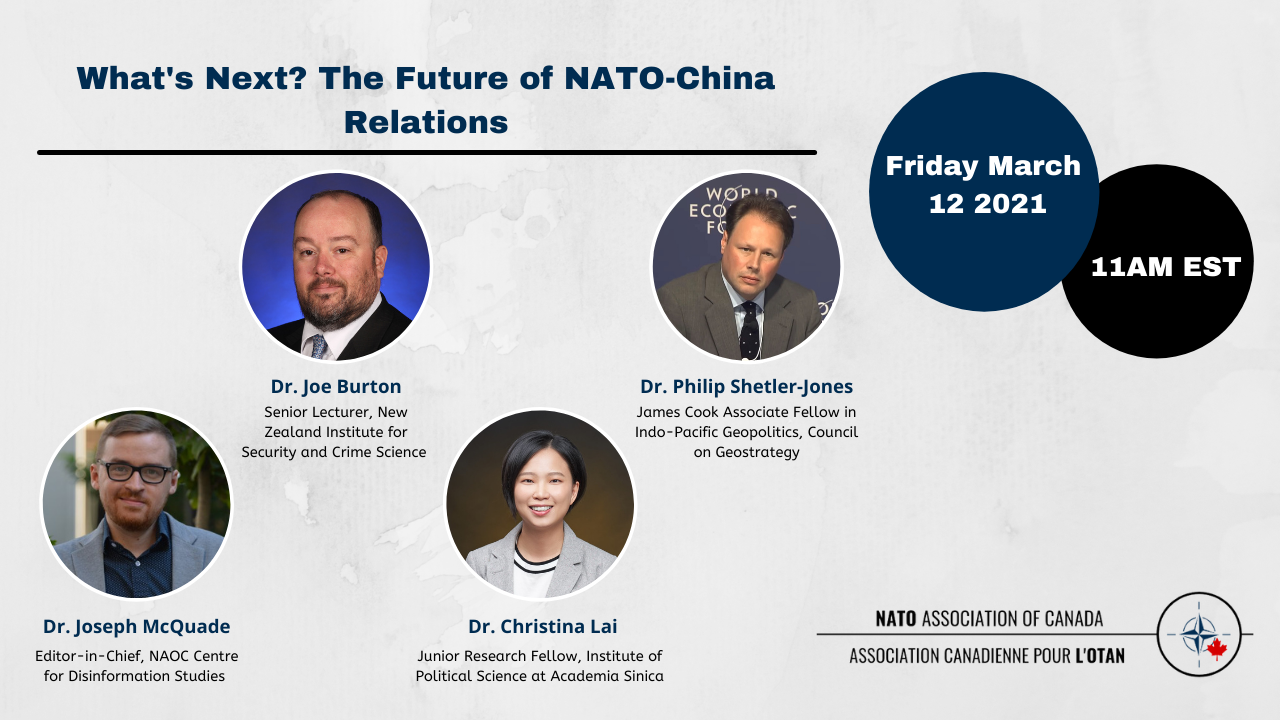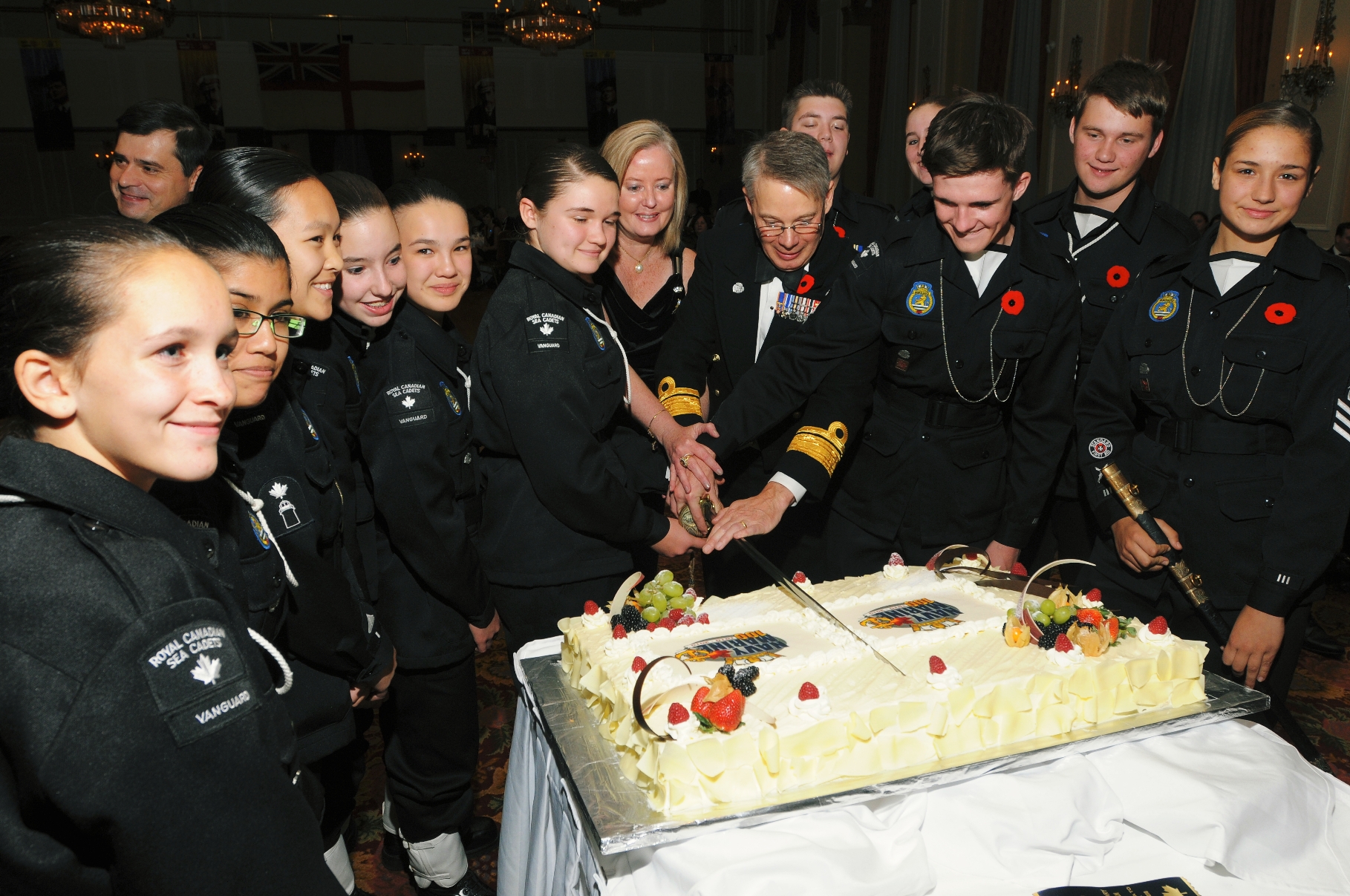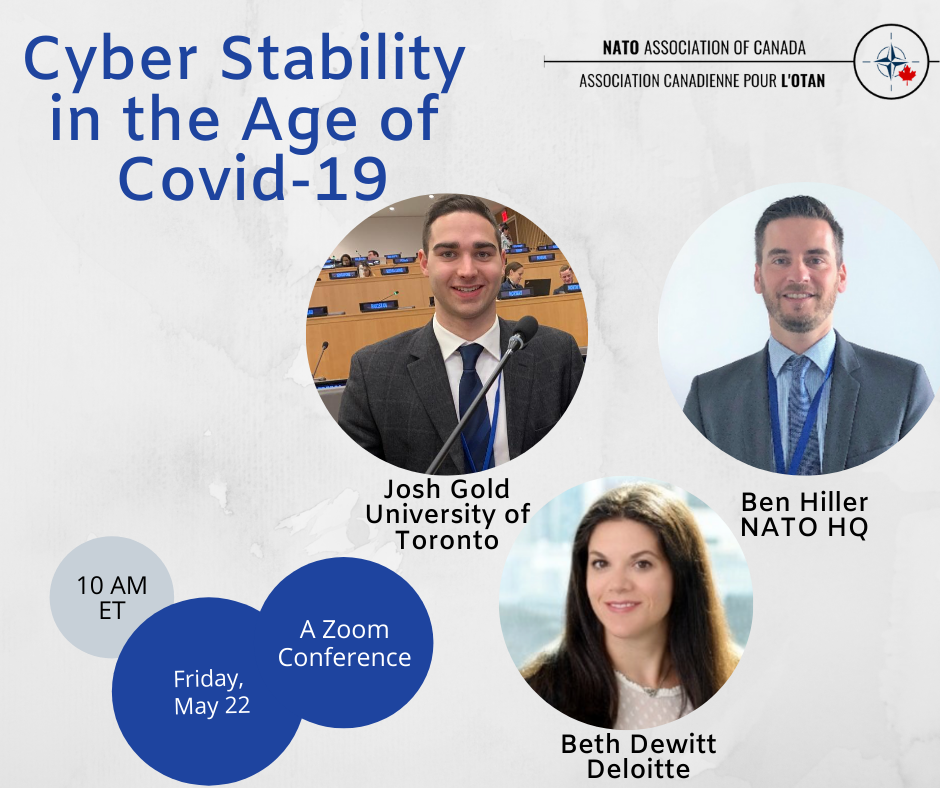NATO will find itself amidst growing U.S-China competition and an increasingly assertive Chinese presence on its Eastern Flank in the post-pandemic world. The future of NATO-China relations is dependent on NATO’s ability to develop a niche for itself to enhance cooperation with China as a partner and competitor while effectively addressing the security risks that may occur alongside China’s rise. In this discussion, our expert panel will examine how U.S.-China competition brings NATO into the Pacific, the challenges that China’s rise poses to Transatlantic security, as well as uncovering opportunities for NATO to engage in the Asia-Pacific with like-minded partners.
Speakers:
Dr. Joseph McQuade, the panel moderator, is Editor-in-Chief at the NATO Association of Canada, where he runs the Centre for Disinformation Studies program. He is also the RCL Postdoctoral Fellow in the University of Toronto’s Asian Institute at the Munk School of Global Affairs and Public Policy and a former SSHRC Postdoctoral Fellowship recipient, as well as a Managing Editor of the Journal of Indian Ocean World Studies. Dr. McQuade completed his Ph.D. at the University of Cambridge as a Gates Scholar, with a dissertation that examined the history of counter-terrorism laws in colonial India from an international perspective. This research forms the basis of his first book, A Genealogy of Terrorism: Colonial Law and the Origins of an Idea (from Cambridge University Press in November 2020). Dr. McQuade has also published widely in academic journals such as the Journal of Imperial and Commonwealth History, the Journal of World History, and History Compass, and has commented on current affairs for national news broadcasters such as CBC and CTV. Information on his book can be found below: https://www.cambridge.org/core/books/genealogy-of-terrorism/BC74FB48CED9CBA2F2DC8B9C580FE714
Dr. Joe Burton is a Senior Lecturer in International Security at the New Zealand Institute for Security and Crime Science, University of Waikato, New Zealand, and a Marie Curie fellow (MSCA-IF) at Université libre de Bruxelles (ULB), where is working on the two-year European Commission-funded project Strategic Cultures of Cyber Warfare (CYBERCULT). He is the author of NATO’s Durability in a Post-Cold War World (SUNY Press, 2018), editor of Emerging Technologies and International Security: Machines the State and War (Routledge, 2020), and his work has been published in Asian Security, Defence Studies, Political Science and with a variety of other leading academic publishers. He is the recipient of the US Department of State SUSI Fellowship, the Taiwan Fellowship, and has been visiting researcher at the NATO Cooperative Cyber Defence Centre of Excellence (CCDCOE).
Dr. Christina Lai is a junior research fellow in the Institute of Political Science at Academia Sinica, Taiwan. She is also an adjunct lecturer in Global Security Studies at Johns Hopkins University. She is interested in U.S.-China Relations, Chinese Foreign Policy, East Asian politics, and Qualitative Research Methods. Her works have appeared in the Politics, Journal of Contemporary China, Pacific Review, International Relations of the Asia-Pacific, Asian Survey, and Asian Security.
Dr. Philip Shetler-Jones is a consultant for the Deutsche Gesellschaft für Internationale Zusammenarbeit, (GIZ) working on Europe/Asia security cooperation. He holds a Ph.D. from the University of Sheffield in Japanese Security Policy, and a Masters in Law and Diplomacy from Tufts University, which he attended as a US-UK Fulbright Scholar. During five years as an officer in the Royal Marine Commandos, he served as a peacekeeper in Bosnia. He has subsequently worked as a political advisor, consultant and analyst for the UK MoD, United Nations, European Union, Organization for Security and Cooperation in Europe, and led a team of civilian analysts in NATO at SHAPE. Philip is an Associate Fellow at the Council on Geostrategy and writes in a private capacity.



